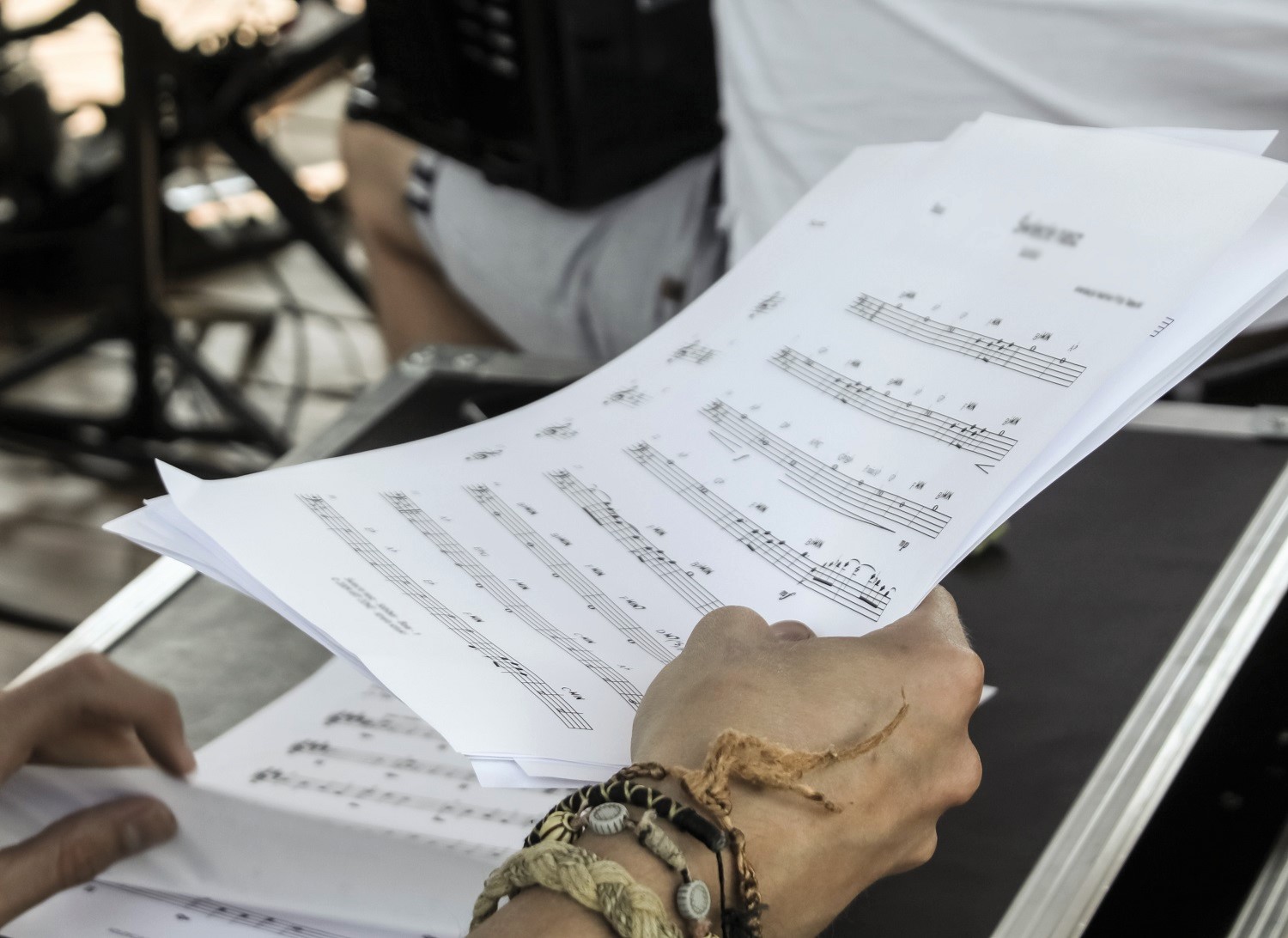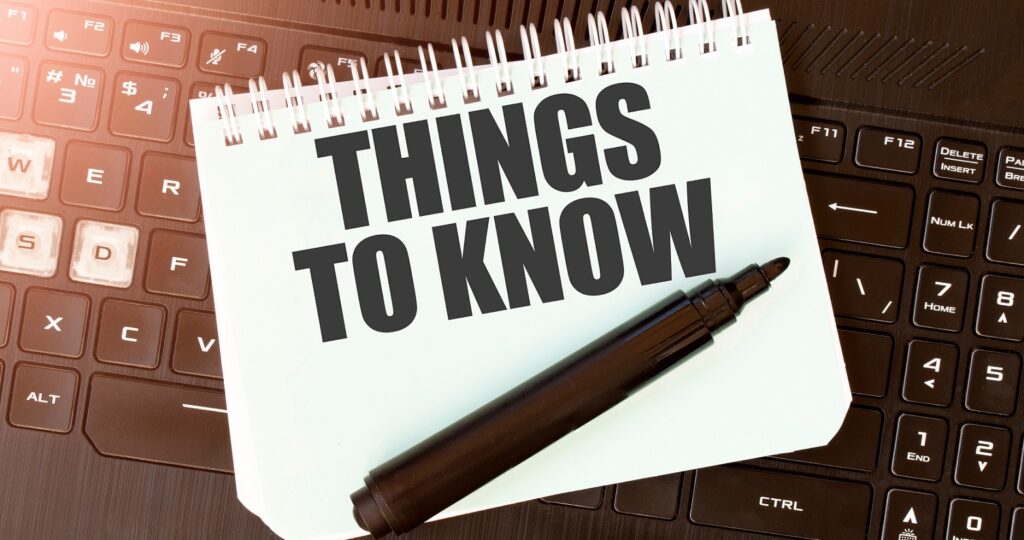Training Plan for Your First Year of Teaching
Your first year is like training for a marathon. Prepare during the summer and schedule rest days throughout the school year.
Congratulations on your new job! Whether you are entering your first year of teaching or first year in a new position, it is an exciting time in your life. Just as athletes train and prepare for big events, teachers also need to prepare for our big event known as the first year.
You have sat through courses, observed teachers and taught lessons of your own. You are ready to put theory into practice, but where do you start?
This article is set up chronologically, beginning with the summer before your first day on the job and ending with the last day of school. I believe in five-year benchmarks throughout a person’s career similar to how several school districts and universities acknowledge their employees. With that in mind, I approach the first year of teaching as training for the next four years. Click on the links below to see how I set up my first year:
Summer: strength training
The first week: 5k
First semester: half marathon
Second semester: full marathon
If you have ever trained for an athletic event, you know the importance of built-in rest days in the schedule. I emphasize rest throughout this first-year training plan because it is imperative to your overall well-being. Take your rest days as seriously as your workdays.
THE YAMAHA EDUCATOR NEWSLETTER: Join to receive a round-up of our latest articles and programs!
Year 1 Training Plan
| Timeframe | Central Focus | Objective |
| Summer: Strength Training | organization | Create sustainable organizational systems |
| First Week of School: 5K | building rapport | Gain students’ trust |
| First Semester: Half Marathon | music-making | Create sustainable daily routines that maximize your time |
| Winter Break: Rest | self-care | Reflect and recharge |
| Second Semester: Full Marathon | music-making | minimize organizational disruptions to focus on music-making |
| First Week of Summer Break: Rest | reflect | How can you effectively change one or two items to make your next year run smoother? |
Summer: Strength Training
When training for a large event like a marathon, there are many checkpoints along the way. Many athletes will focus on strength training for several weeks prior to beginning their official marathon training as preventive maintenance. This period strengthens their muscles and reduces the risk of injury further down the line.
Similarly, after accepting a job offer, use the lead time to the start of the school year as preventive maintenance. During this period, you can get a handle on the organizational structure that is currently in place. The ability to physically spend time in your new facilities is important. Take the necessary time to familiarize yourself with inventory items, such as instruments, music, folders, lockers/locks and uniforms.
When you begin to look through your inventory ask yourself these questions:
-
- How are these currently organized?
- Where are they stored?
- What is the school policy for instrument rental?
- Locate all school forms for inventory items.
- Are there currently parent or student volunteers who help with uniforms?
Once you have answered those questions, proceed with making the current system work for you. If you find that an organizational overhaul is needed, I strongly encourage you to envision or create the new structure in a manner that is teachable. Delegate the larger tasks to student leaders or parent volunteers in order to spend your time and efforts on students and music-making.
 The calendar for the upcoming school year has likely already been set. Make sure to map out your year, start by adding the following events to your work calendar:
The calendar for the upcoming school year has likely already been set. Make sure to map out your year, start by adding the following events to your work calendar:
-
- Concert Band concerts/events
- Jazz Band concerts/events
- Pep Band events
- Marching Band events
- Travel (is it one trip per year?)
- Annual fundraisers
- Annual recruitment tours
- Parent Organization meetings
Highlight all events that require travel, such as festivals, and check with the school administrative assistant about the procedure for bus requests. How many weeks prior to the event do you need to submit bus requests? Add those deadlines to your calendar! Once you have the calendar organized, send an email to parents and students introducing yourself and the important dates for the upcoming school year.
 Once you have your calendar mapped out, you will have a better idea of when your first public performance will be and with which ensemble(s). You can begin to think about programming music. To keep it simple, try to find programs from the past three years of concerts to give you an idea of what music the ensemble(s) have performed. This gained insight can guide you toward a difficulty level. Rosters of your classes will also help you estimate expected instrumentation. From there begin pulling music from your library that is comparable to the previous year’s concert programs. I also encourage teachers to pull music that is on the easier side for sight reading at the beginning of the year. This helps to build confidence for the ensemble and for you to focus on musicianship versus notes and rhythms from day one.
Once you have your calendar mapped out, you will have a better idea of when your first public performance will be and with which ensemble(s). You can begin to think about programming music. To keep it simple, try to find programs from the past three years of concerts to give you an idea of what music the ensemble(s) have performed. This gained insight can guide you toward a difficulty level. Rosters of your classes will also help you estimate expected instrumentation. From there begin pulling music from your library that is comparable to the previous year’s concert programs. I also encourage teachers to pull music that is on the easier side for sight reading at the beginning of the year. This helps to build confidence for the ensemble and for you to focus on musicianship versus notes and rhythms from day one.
While most of this prep work can be done in solitary, keep in mind that athletes rarely train alone, they have coaches and peers who they can go to for advice. Similarly, seek advice and mentorship early. One of the first connections that I encourage you to make is with the administrative assistants and custodial staff. These people are the lifelines at every school. They know who you need to contact for any given scenario, where you can find information and how to approach specific people. Keep in mind that these people are also extremely busy, so go to them with a well-formulated question or set up a meeting with them and bring several questions. They will appreciate that you are respectful of their time and have gathered your questions together.
Also, take time to meet the counselors at your school. Ask them questions about how the registration process of classes works and where music classes fit in the process. What classes are offered concurrently with your courses? Gather all the information that you can before the school year begins.
 Now that you have spent time getting to know your inventory, calendar and creating your important support system within the school, make sure to reach out to your mentor and colleagues outside of your school. The true secret to success is having a support system that might include friends you graduated college with or past teachers who you now call your friends. Connect regularly with the people who will listen and offer advice when asked.
Now that you have spent time getting to know your inventory, calendar and creating your important support system within the school, make sure to reach out to your mentor and colleagues outside of your school. The true secret to success is having a support system that might include friends you graduated college with or past teachers who you now call your friends. Connect regularly with the people who will listen and offer advice when asked.
The final step of this summer period is to reflect and dream. Take time to write down your why. Why do you want to work at this specific school? What goals do you have? Dream big! Write down your five-year goals first. What do you hope to accomplish by year five on the job? Do you want the program to have experienced a certain amount of growth or performed at a specific venue? Write them down as well as benchmarks to hit along the path to success.
Forbes released an article in 2017 titled “11 Powerful Traits of Successful Leaders” and the fifth trait mentioned is “Setting Clear Goals and Persisting in Achieving Them.” Students want to be part of something bigger than themselves. Having big dreams and goals to chase creates a culture of excellence for your program. Do not skip this all-important step of your summer prep.
The First Week: 5K
The first week of the school year is fast and furious. This is when you will appreciate your summer prep work. Each year your first week of school will become more efficient.
Here is what I have learned over the years. The first day of school sets the tone. Have as much as possible ready to hand out on day one. Line up instruments with rental contracts along the walls and put student folders in assigned slots. Inside their folder, students can find their assigned locker number and lock combination if it is school provided.
On day one, this can be a simple process. When you are ready to share the information, simply project on the screen folder slot assignments and have students pick up their labeled instrument in exchange for the signed paperwork. This all takes a good amount of prep work, but the result is a clean handling of inventory. Once you have distributed the inventory, the rest of the week can be spent making music and building community. Spend time with appropriate warm-up/technique books and sheet music. Make music as much as possible and keep the room filled with positive energy, so students know that it is going to be a great year!
The First Semester: Half Marathon
Remember the calendar that you created during the summer? Make sure to consistently use it, and you won’t miss important deadlines, such as bus requests! This semester will fly by, so create daily and weekly habits that will enhance your work/life balance.
 Set boundaries with your work email. After a certain time at night, you are no longer on the job and all incoming emails can be read and responded to the next workday. The earlier you set these boundaries the better — parents and students will learn your communication habits. Stay strong when someone becomes upset that you did not immediately respond to an email that they composed at 11:00 p.m. Politely respond during your regular work hours and thank them for their patience.
Set boundaries with your work email. After a certain time at night, you are no longer on the job and all incoming emails can be read and responded to the next workday. The earlier you set these boundaries the better — parents and students will learn your communication habits. Stay strong when someone becomes upset that you did not immediately respond to an email that they composed at 11:00 p.m. Politely respond during your regular work hours and thank them for their patience.
Create routines for yourself and your program. Have a consistent routine for lesson planning, class structure, daily email correspondence, weekly/biweekly email newsletters for parents, and planned time for yourself. During the first year, it’s not a bad idea to hang a chore chart by your desk and physically check off each daily task. You can find hundreds of templates for these online. A chore chart can help you stay focused each day on the task at hand, maximizing your down time. The more organized and focused you are at work, the easier it is to “leave work at work” and strike a greater work-life balance.
While you figure out your routines and how to balance work with your personal life, make sure to give yourself space to reflect often. How are your ensembles progressing musically? Are you establishing a good rapport with your students? Check in with the goals you set prior to school starting — does anything need to be revised now that you are living in the job? Touch base with your support system. Send texts to your friends and laugh regularly.
Winter Break: Rest Days
Take your rest seriously, unplug from the job over winter break. Go into your email settings and set up the automatic out-of-office reply that lets people know that you value their correspondence and will respond after school resumes. The last step is to delete your email app from your phone, if you have it installed. Enjoy, you earned this break!
Second Semester: Full Marathon
During the first semester, you created a foundation to build on. You have routines in place that work for you. Throughout the second semester consistently reflect and evaluate what specific parts of your job are creating friction. Continue to smooth out any administrative tasks that are distracting you from the most important part of the job: your students.
This is an ongoing process in the job, so give yourself time and grace. Accept that you will make mistakes and own them when they happen.
Begin planning for the next academic year while finishing out this one. What events were great and should continue? Is there anything that could be left out next year?
Check in with your goals and create a trajectory for your program that is both positive and sustainable. Remember that you are not alone, continue to lean on your support system.
Summer Break: Reflect and Rest
During the first week of summer break, go someplace off campus and reflect on your year. Choose a place that will allow you the space to think clearly and write down your thoughts. Bring a journal or laptop and write down everything that went well.
What are some areas of opportunity for improvement? Write down a few actionable steps to aid in improvement. Is there anything you can remove from the job? Or is there an area where you can continue to hone your daily routine in order to maximize your downtime?
After you have reflected, give yourself time to rest. Set the automated email reply and unplug for a good chunk of time.
Congratulations, you have completed your first year of teaching!

















